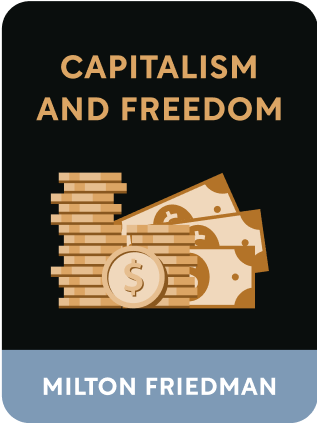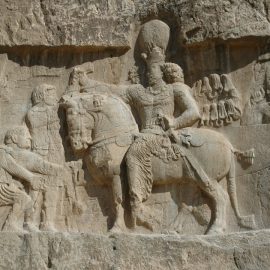

This article is an excerpt from the Shortform book guide to "Capitalism and Freedom" by Milton Friedman. Shortform has the world's best summaries and analyses of books you should be reading.
Like this article? Sign up for a free trial here .
What is the school voucher system? How does it work and does it improve the educational system?
The school voucher system is a way that lets students and parents choose what school they attend. Friedman argues that this system permits public financing of the school system without government control.
Read more about the school voucher system and why Milton Friedman thinks it works.
School Voucher System and School Choice
This state of affairs is clearly in conflict with economic freedom, eliminating, at least in a practical sense, the right of individuals (parents) to enter into voluntary contracts to pay for the services they wish to receive (education) in the form of school vouchers.
The solution to this problem is to decouple the public financing of education from the public administration of schools, like the school voucher system. Instead of paying taxes and having no choice in the matter of where to send their children to school, parents should instead receive a voucher from the government.
This voucher would be redeemable for educational services up to a certain amount for each child, provided that they are spent on approved education providers that meet certain minimum standards. Beyond that minimum requirement, parents would be free to spend their school vouchers on whatever educational option they deem to be best for their children.
Equality of Opportunity
This introduction of school choice would greatly enhance equality of opportunity, particularly for children in underserved communities. Under the existing system of the government’s near-monopoly on K-12 education, children in such communities are trapped in failing schools.
The tax base of their neighborhood is usually too poor to raise adequate funds to finance decent schools. Because of their poverty, these children’s families rarely have the necessary funds to send them to private school or to move out of the neighborhood. Thus, the system locks in an incumbency advantage for underperforming public schools that only families of means can hope to escape. It is inherently prejudicial to economically disadvantaged children—and in America, this often means children of color.
With a school voucher system, disadvantaged families would be able to spend their money on schools of their choice, enabling them to escape their failing local schools. Because the school vouchers would be standardized, these families would have the same purchasing power for educational services as everyone else—reducing their comparative disadvantage in the market and enabling them to compete on more equal footing with families of greater means.
This would also be likely to break down de facto racial segregation in the school system, as children of color would have greater freedom to leave the neighborhood schools for which they are zoned.
Introducing Competition
A school voucher system would also inject some much-needed competition into the market for education providers. Because government-operated schools enjoy a near-monopoly on the provision of educational services, they have little incentive to become more efficient or to raise their standards.
They receive guaranteed revenue that their “customers” are legally required to pay them in the form of taxes, regardless of performance. Teachers, like the school system itself, have few incentives to perform well because they are not paid more for producing better results. Their wage increases are instead tied to their acquisition of certain teaching degrees and to seniority (where the longest-tenured teachers automatically receive higher salaries).
A school voucher system would deprive underperforming schools and teachers of their guaranteed revenue stream. With parents having greater freedom in the choice of where to send their children to school, market forces would introduce more efficiency into the system. Government-run schools that produced poor results would soon find themselves deprived of revenue (like any other seller that produced inferior goods); ineffective teachers would find themselves out of a job.
Over time, resources would flow to those schools that produced better results and away from those that didn’t, as they would in any market.

———End of Preview———
Like what you just read? Read the rest of the world's best book summary and analysis of Milton Friedman's "Capitalism and Freedom" at Shortform .
Here's what you'll find in our full Capitalism and Freedom summary :
- The key principles from Milton Friedman's Nobel Prize-winning book
- Why capitalism functions best when it is freed from government restraints
- How forced redistribution schemes are morally unjust






